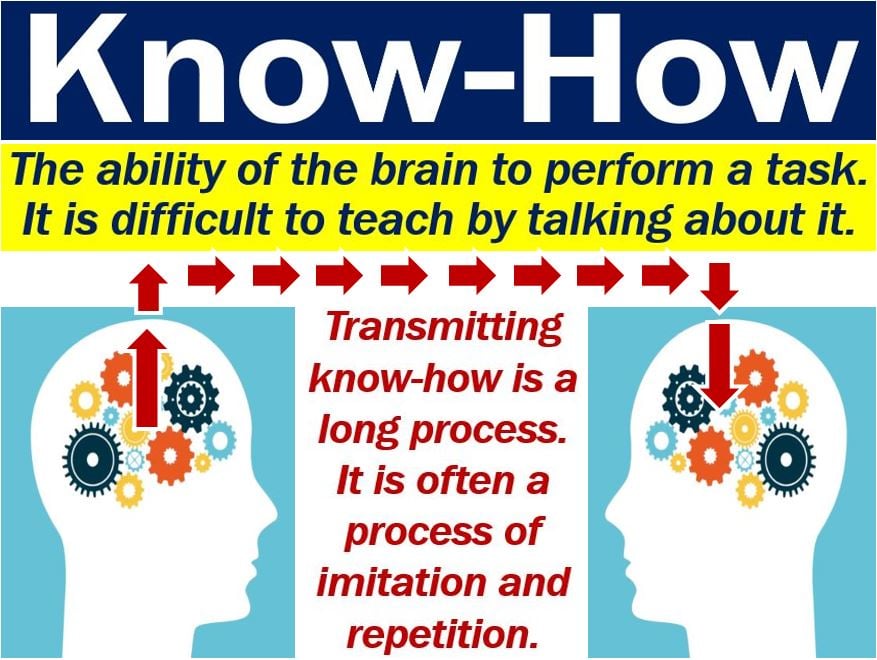Know-how refers to skills, abilities, and knowledge that people have; specifically their ability to do things. It also refers to people’s ability to accomplish things successfully. Know-how is the ability of the brain to perform a task. In businesses, it is the knowledge and ability to run things within the company. This often includes techniques that will help achieve success in business and provide the company with a competitive advantage.
Competitive advantage means the same as having the edge over other companies, especially rivals. If a company has a competitive advantage, it has something consumers like but other companies do not have.
Know-how is sometimes hard to pass on to other workers. It is knowledge that may include specific formulas, patterns, or techniques. It also includes certain practices.

Knowhow or know-how?
We can write it as a one-word or two-word term with a hyphen, i.e., know-how or knowhow. According to Collins Dictionary, Americans write it as one word while British writers prefer two words with a hyphen.
However, I have gone through hundreds of articles online and have to disagree. I have found that the two-word spelling is much more common in both the British and American English.
Some dictionaries, in fact, also write the term as two words but with no hyphen.
A factor of production – know-how
The term know-how is an important factor of production, as it involves accumulated skill and knowledge. In some cases, it may also involve trade secrets.
Factors of production are the building blocks or elements that we use to produce products and services. They include enterprise (entrepreneurship), labor, capital, and land.
Long-serving workers, for example, have knowledge, expertise, and skills that can’t be taught in a book or school. How do people with 40 years’ service explain everything they learned to newcomers?
In a franchise, it is the accumulated knowledge or set of information and skills that have helped the business succeed. This information includes marketing, operation processes, and finance. The franchisee also benefits from the franchisor’s management skills.
The transfer of know-how from the franchisor to franchisee is a major factor in the high success rate of franchises.
Sharing know-how
The German multinational electrical and electronics giant Siemens launched ShareNet. It is a program that encourages innovation, best practices, and rapid growth through knowledge management.
Siemens wanted to share the know-how generated by employees. Subsequently, it facilitated knowledge sharing among workers.
The program aims to innovate and standardize its processes through best practices, improve and share customer knowledge, and improve learning curves for new employees. The aim is also to encourage collaboration among workforce members and improve operational efficiency.
In a Harvard Business School Case article, Alan D. MacCormack, Kerry Herman, and Sven Volpel describe ShareNet as:
“An innovative knowledge management system used by a division of Siemens. ShareNet attempts to capture the knowledge and experience of Siemens’ many dispersed sales and marketing units around the globe, making it available to all.”
“ShareNet has to date been funded as a corporate initiative, free to all who use it.”
However, the company has been facing increasing pressure to cut costs. It is, therefore, considering charging subscribers for the use of the tool.
